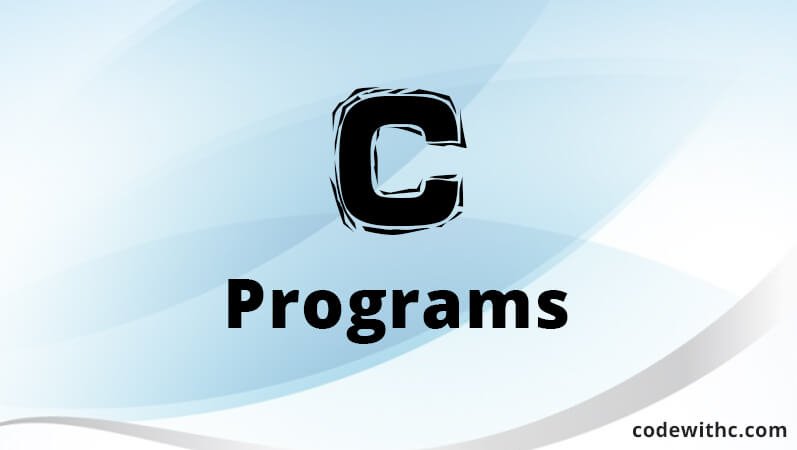Which is the only function all C programs Must Contain? The programming language C requires programmers to write a function called main(). This function is the only one required in a program, and it’s the one that determines what happens to the program when it’s run. Because of this, the word main() is sometimes used to mean the entire program.
The programmer wrote a program that contains the main(), and so the word main() is used to describe the entire program.
In many programming languages, main() doesn’t have to be the first thing a program does. In fact, some languages don’t require any particular function to be named main(). However, the main() function is usually the first function in a C program.
The main() function is used to start a program. When the program is started, the main() function is called to start the program. It’s important to understand that the main() function is only called once, and only when the program is started.
When the program starts, the main() function is called to start the program. main() starts the program.
//without parameters
int main( )
{
…
return ( 0 );
}
A program can contain any number of functions besides the main() function. Some languages have more functions than others, and C has more functions than some other languages. If the programmer wanted to, he or she could add a few functions to the program above. For example, a programmer could add a second function, foo(), to the program and call both functions when the program starts.
However, there’s no reason to add more functions to the program. Main() is the only function that the program needs.
The program above contains three functions: main(), foo(), and bar().
A program might not contain any functions. In this case, the main() function is called automatically when the program starts, but it’s not possible to start the program without any functions. It’s possible to write a program that contains no functions.
A program that contains no functions isn’t usually useful. You can’t do anything with the program, and it’s not possible to start the program.
- The main function is one of the most important functions in any programming language.
- It’s called the main function because it’s the first function that gets executed when you run your program.
- It’s also called the entry point because it’s the first thing that gets executed when you start your program.
- However, it’s not the only function that gets executed when your program starts.
- It’s just the function that’s responsible for initializing the rest of your code.
The main() function is the primary function called by the compiler. This is the function that starts a program. It does this by starting all the other functions. The main() function needs to be declared at the top of the source code file where you are going to use it. The main() function should be the first statement of any program that contains the main loop.

The main function is a routine that runs at the start of the program. It usually does a lot of setup work. In most cases, it will also include a loop that will repeatedly execute some statement or instructions. This loop could be repeated a few times. Each time it executes, the program performs a specific set of tasks, like initializing variables and executing other functions. A typical program will use only one main function. But there is no limit to the number of main functions you can have in a single program. This is why the C language allows you to use main in several different ways. This tutorial discusses what the main function actually does and when it should be used. We also discuss some other ways to write a program’s main function.
In conclusion, a function is the basic building block of any program. A function contains a defined set of instructions. It can take input data from outside the function and perform some operation on the input. Then it can return a result to the outside world. This is the core purpose of functions in any program. They perform one task and then they return the output.






